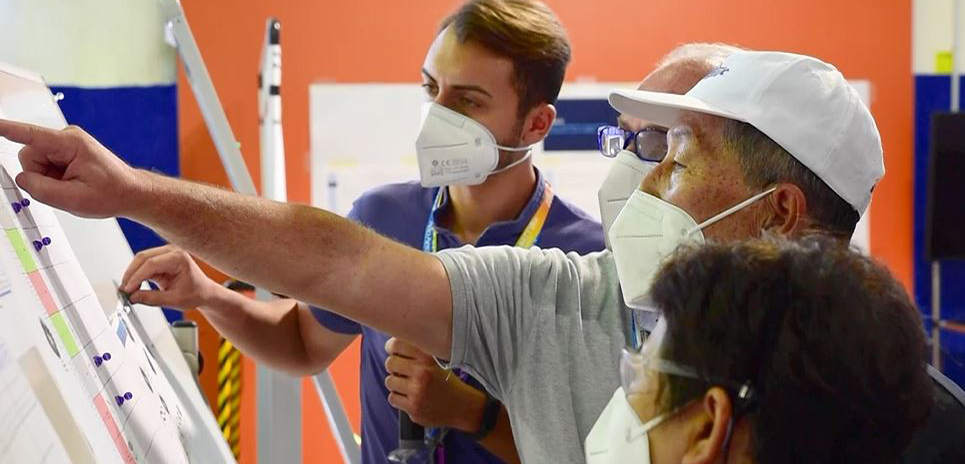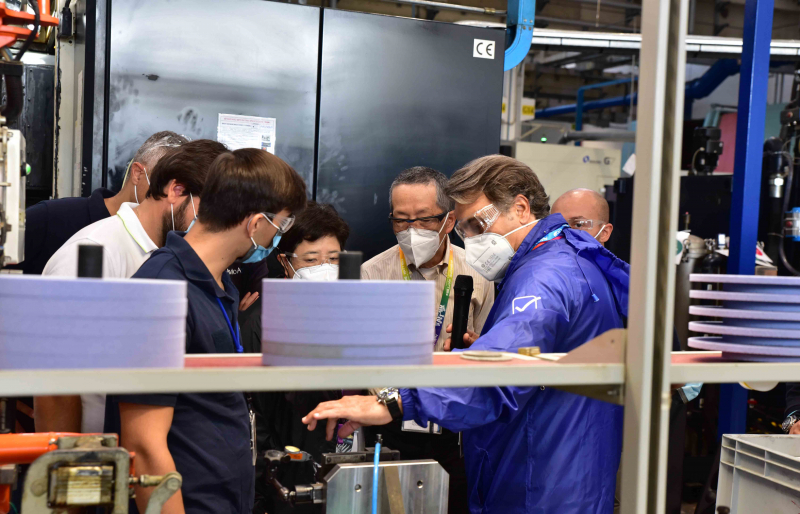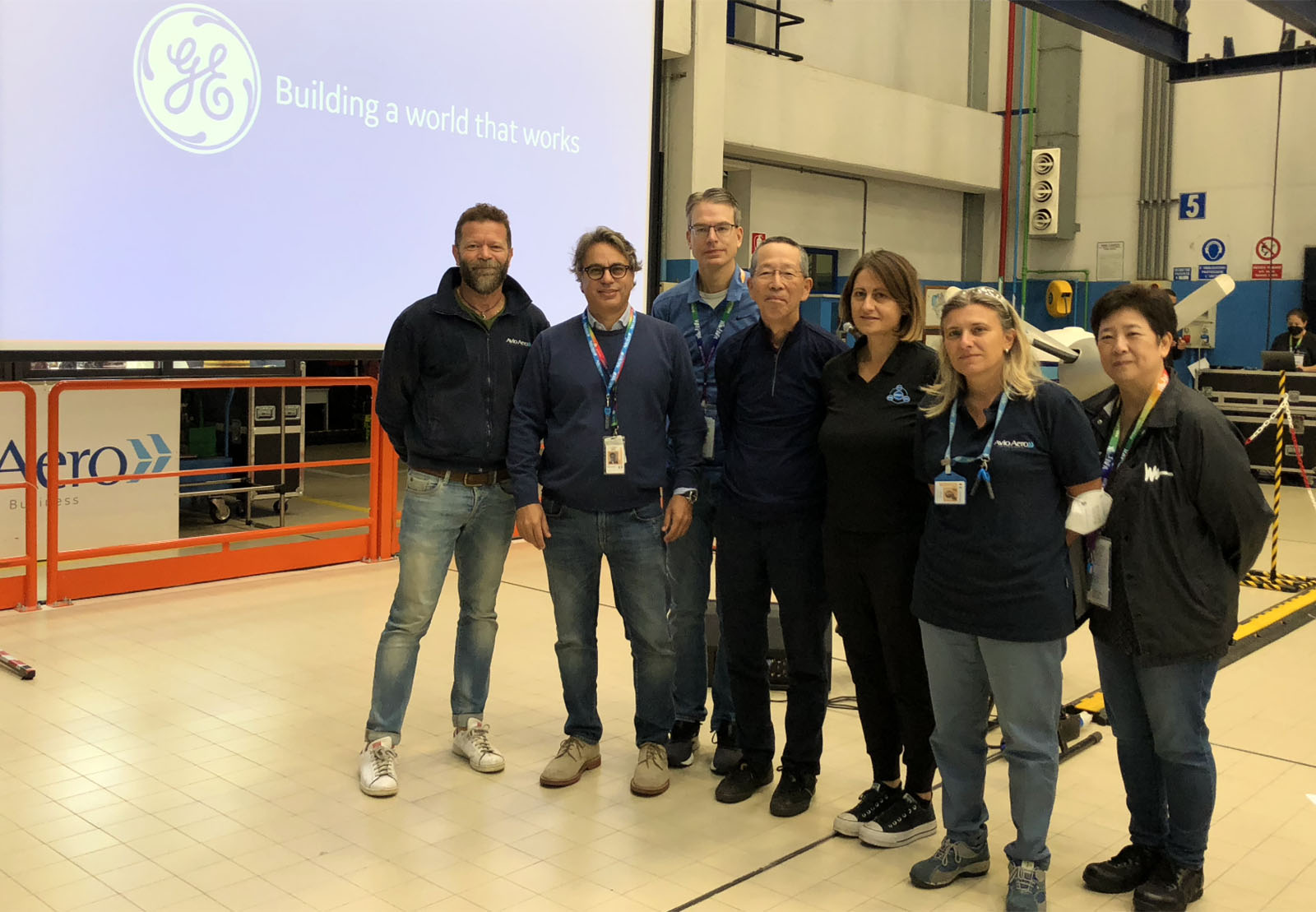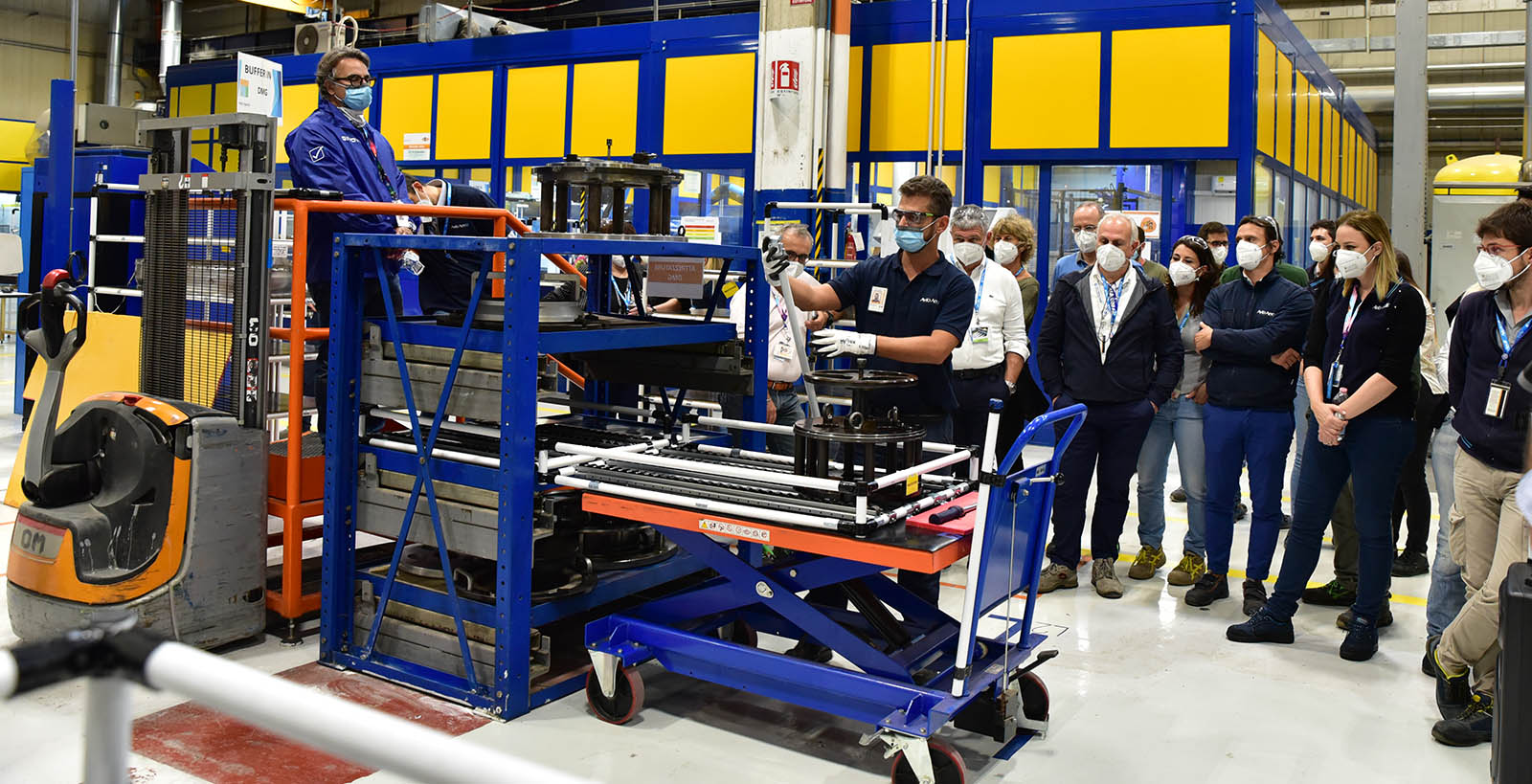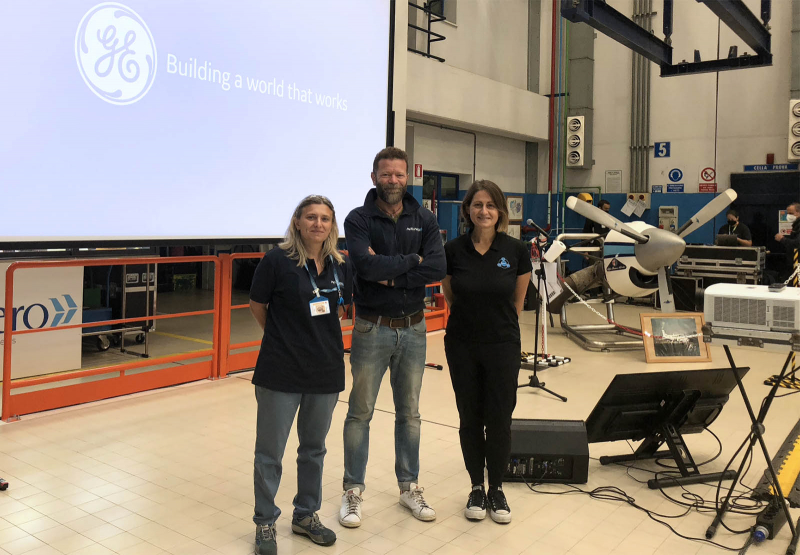Invent
Five days of Kaizen
In Pomigliano, alongside technicians and operators, senior management spent one working week of Lean full immersion to learn and transform, finding out how to challenge their limits.
Oct 2021
The Japanese word “Kaizen” means change to improve, and in Lean manufacturing’s dictionary it indicates the highest point of the continuous improvement journey. Toyota’s methodology then crystallized it within the Kaizen Week: 5 days to challenge yourself and bring solid, tangible results to an organization’s processes.
Kaizen Week has just ended at the Pomigliano d’Arco plant, the flagship of Avio Aero’s Lean transformation. Here, operators, engineers, tech specialists and the whole leadership team have been guided and accompanied by Sensei Kawakami from the Shingijutsu USA Corporation - one of the most authoritative companies in the diffusion of the Toyota Production System.
Requested by the leadership, and held simultaneously with the only other GE Aviation industrial site in Lynn (Massachusetts) selected along with the Naples site to wbe guided by a Sensei, Kaizen Week has come to Italy because the Pomigliano plant has shown significant progress in embracing this very culture.
The key to it all was Genba which we could define as the place where it all begins, in fact all the teams’ work took place on the shop floor in contact with operators
“Lean is a process that never ends,” commented Gioacchino Ficanol, Plant Leader at Pomigliano, “it’s a never-ending journey, because there’s always room for improvement. One indicator, however, is the speed of progression, the rate at which people understand and apply the methodology, and in this we distinguished ourselves. To be chosen among many sites around the world has been a great source of pride for all Pomigliano’s workers and to host a Kaizen Week guided by Japanese experts is a unique and unrepeatable experience”.
Emilia Pollasto is the Lean Leader at Pomigliano and - together with Patrizia Mazza, Lean Leader Global Supply Chain, and Fabiana Panni, Division Lean Deployment Champion - the architect behind the success of this initiative, which saw seven teams working concurrently at the Pomigliano site (the second largest Avio Aero site in Italy, with over 1200 employees), with leaders and operators working side by side.
“It’s amazing to see how much improvement you can achieve in just five days,” said Emilia, “the key to it all was Genba, which, technical jargon aside, we could define as the place where it all begins. All the teams’ work took place on the shop floor in contact with operators so as to be able to analyze potential areas for improvement, identifying causes of problems and obstacles in order to focus on the future - on how things can be done - rather than on how they have been done so far.”
Operators had a key role to play in interrogating their way of working and completely transforming processes. Just to give an example of the improvements implemented in the three main operational areas of the plant (Airfoils, Combustors, and Service of components and modules for aircraft engines): one operation in Combustors used to take a total of 98 minutes and has been reduced to only 6 minutes. While another operation in the service area that used to require operators to walk more than 3300 steps, has been reduced to 660 steps after Kaizen Week.
“For those embarking on the lean journey, immersing yourself in Kaizen together with Sensei is both a mystical and very practical experience.” Patrizia Mazza said, “You have the principles in mind and you have to apply them with an expert who raises the bar and challenges you to do more. As soon as you reach the set target of 50%, you have to move on to 80%, and then maybe to 90%, and the extraordinary thing is that the response from the teams is always positive. As you understand that it can be done, your enthusiasm for the endless possibilities opening up to you grows”.
“What’s clear to me from this week is that nothing is impossible,” said Fabiana, “this has been demonstrated in practice by all our colleagues in the various departments - Sales, Sourcing, Engineering - who worked alongside operators to understand, learn, and improve. The effort was to overcome the ‘status quo’ and even problems that seemed insurmountable were approached with a fresh perspective. This doesn’t mean forgetting the expertise with which the tasks are performed, but being willing to shed a new light on it all to make continuous improvements.”
It is no coincidence that there are three women in such decisive roles for the transformation of production processes. That is a specific choice made by the company in an attempt to overcome gender stereotypes by enhancing skills and talents in predominantly male industrial environments, such as the factory floor.
This week’s legacy, among other things, has been the teachings in the field offered by Sensei Kawakami, who had the following to say about the Pomigliano site’s commitment: “The spirit of collaboration between people that I’ve experienced over the past few days is what makes this company great. It is a beautiful plant, even if based on my experience I look at it with strict eyes and I know that I have to find at least 33% waste to reduce to make it better. Added value is only there when the product is a high-standard one, and this approach encourages people to work on reducing waste at all times. The spirit of Kaizen forces you to always look for that 33% waste to take out, even when the processes look good.”
Added value is only there when the product is a high-standard one and this approach encourages people to work on reducing waste at all times
Finally, Sensei left a crucial tip for the future: “Improvement is a permanent condition: the Kaizen approach is always this for any company, big or small. In terms of targets, both the teams that worked on the machines and those that worked on total process times achieved considerable results, experimenting with lean principles and coming to understand independently how to go beyond their own vision linked to the way things have always been done, overcoming their own limits.”


